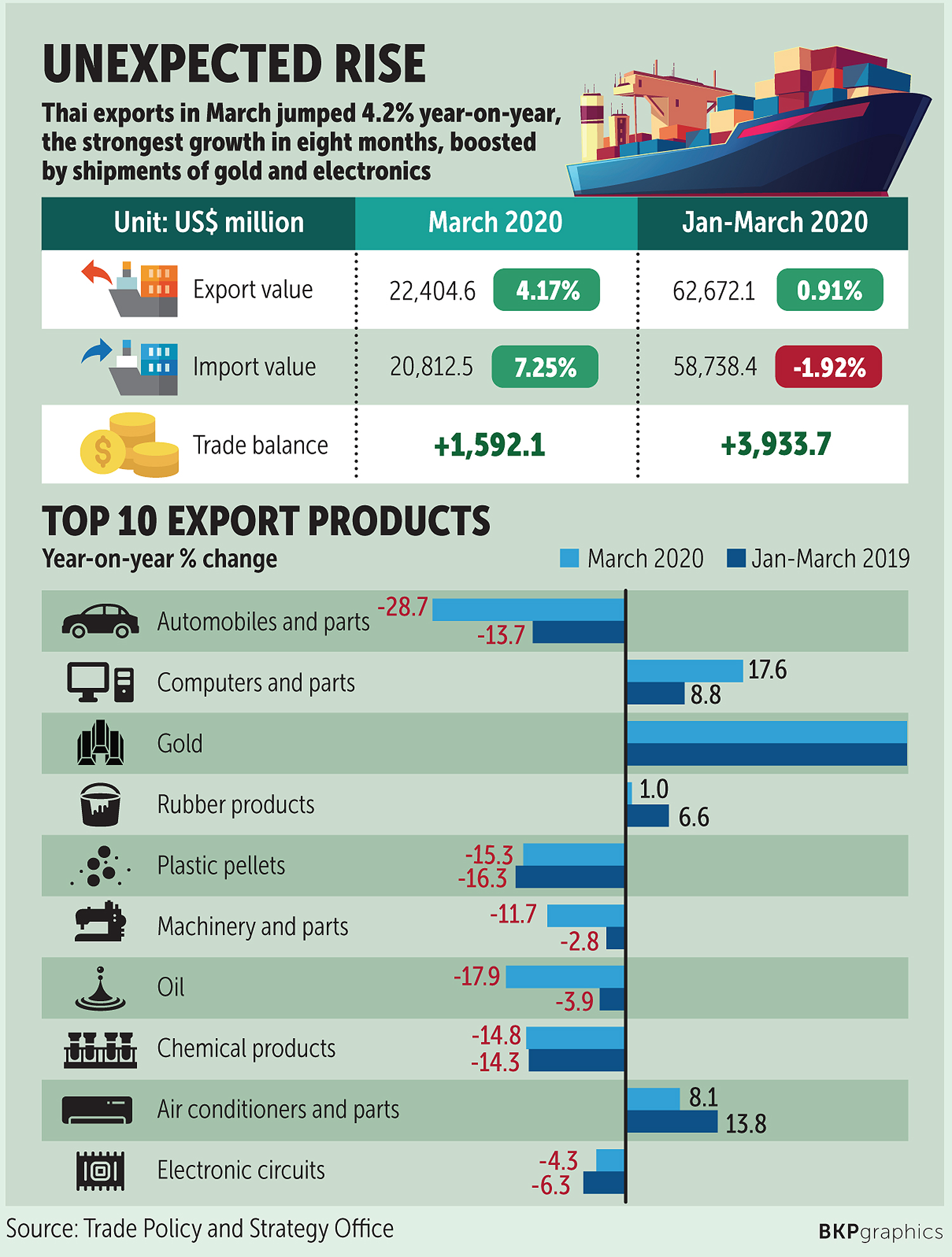Thailand: State upbeat on full-year exports
The government remains positive that exports are unlikely to plunge by 8-10% this year as predicted by several forecasting agencies.
Pimchanok Vonkorpon, director-general of the Trade Policy and Strategy Office under the Commerce Ministry, said that despite challenging global factors such as the coronavirus pandemic, there are supporting factors for exports during the rest of 2020, including the nation’s strength and competency in food and agricultural industry and essential goods, China’s recovery from the outbreak and baht depreciation.
“The spread of the coronavirus has highlighted the growing demand for agricultural products and processed foods,” Ms Pimchanok said.
“Thailand, as one of the major food producers in the world, can capitalise on this opportunity and increase consumer recognition and confidence in products from Thailand,” she said.
“China is also recovering from the outbreak, and its production is expected to reach full capacity by the end of April, which would benefit Thai exports in the related supply chain, while the weakening baht will support the export of products with high price sensitivity.”
For export promotion in 2020, the Commerce Ministry has swiftly adjusted with digital-based activities such as online exhibitions and business matching, she said.
The Commerce Ministry reported yesterday that exports unexpectedly rose 4.2% year-on-year in March to US$22.4 billion, marking the biggest expansion in eight months and the highest value in 19 months.
Excluding gold, oil and weaponry, March exports were still up 2.1%, the ministry said.
“Electronics such as computers and parts dominated the export rebound from the real sector and registered positive growth for a fourth consecutive month,” Ms Pimchanok said. “Recovery signs in electronic products were reflected across major markets such as the US, Hong Kong, China, Singapore, Taiwan, Japan and South Korea.”
Moreover, exports of agro-industrial products such as fruits and vegetables, frozen and processed chicken, sugar and pet food have continuously expanded in response to rising demand for food and other essential goods.
But lower global oil prices have suppressed the export value of oil-related products, which accounted for 8.2% of March’s total exports.
For the first quarter of 2020, exports grew 0.9% year-on-year to $62.67 billion. Excluding gold, oil and weaponry, exports were up 1.1%.
In March, shipments of agricultural and agro-industrial products fell 1.1% year-on-year to $3.53 billion, weighed down by rubber (-24.7%), rice (-13.2%), cassava products (-13.1%) and canned and processed seafood products (-6%).
Other items performed well including sugar (+17.5%), fresh, frozen and processed fruits and vegetables (+15.8%), fresh, frozen and processed chicken (+7.5%) and pet food (+11.5%).
Exports of industrial products expanded 6.4% in March versus the same month last year to $18.23 billion, with strength in gold (+215.2%), aircraft parts and accessories (+1,129.3%), computers and parts (+17.6%), steel and steel products (+29.5%), air conditioners (+8.1%) and other vehicles and parts (+1,263.2%).
Exports of some products declined, namely automobiles and parts (-28.7%), oil-related products (-17.9%), precious stones and jewellery excluding gold (-25.3%) and electronic circuits (-4.3%).
In March, imports rose 7.3% year-on-year to $20.81 billion, yielding a trade surplus of $1.59 billion.
For the first three months, exports fetched $62.67 billion, up 0.9% on the same period last year, for a trade surplus of $3.93 billion.
Source: https://www.bangkokpost.com/business/1904620/state-upbeat-on-full-year-exports


 English
English




